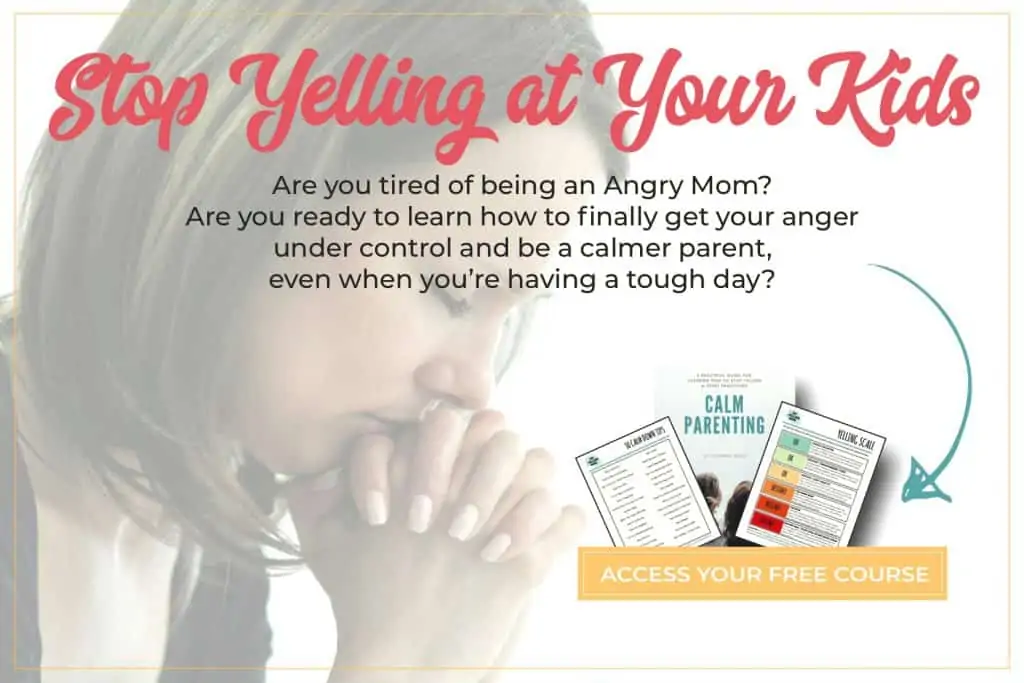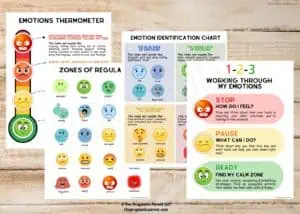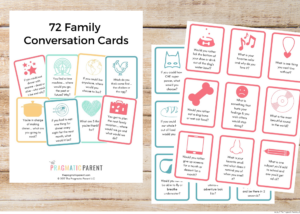At my first job, I learned very quickly that in order to gain more responsibility and move up the ranks, I had to be the consummate “yes” person. I said yes to extra work, I said yes to working extra hours and events, and I said yes to more and more projects, even if my plate was already full. I would have a brief panic period about the workload I had buried myself under and then dig myself out and tackle the mountain of work.
I kicked myself for always being a people pleaser and the unreasonable workloads I was amassing but continued to move from one job to the next, saying “yes” to requests and rarely uttered the word no. It taught those I worked with that they could schlep their extra work onto my plate and I wouldn’t stop them. It was exhausting and I was tired of being the “yes” person because I couldn’t set healthy boundaries.
It wasn’t until I was a parent that I started learning the power of saying “no.” My priorities were making sure my children were healthy, stayed on routine and had consistent naptimes and bedtimes. I started saying “no” to outings that conflicted with our naptimes, I said no to people visiting if they were sick, I said no to people feeding our kids sweets and I said no to things that took away from our family spending quality time together.
For the first time in my life, I was learning about setting healthy boundaries and listening to my internal self and not making myself, and our children available to everyone, all the time. But other people who were accustomed to not being told no, including family, made me feel selfish and guilty for setting healthy boundaries. No one should be made to feel guilty or bad about the healthy parameters they choose to set in their lives.

Boundaries allow us to take better care of ourselves – emotionally, mentally and physically. So, how do you set healthy boundaries?
FOLLOW YOUR GUT
If someone or something is making you uncomfortable, not respecting your wishes or putting you in situations that you don’t want to be in, listen to your intuition telling you enough is enough.
It may be that you are doing something out of obligation or the need to please others when in fact, it’s making you uncomfortable or something you don’t want to do. What about if your beliefs or values being tested and you’re in a situation you’re not comfortable with?
You are responsible for your own happiness and if boundaries need to be placed because your happiness, beliefs, values or lifestyle is being compromised, it may be time to set healthy boundaries.
BE CLEAR IN DEFINING THE BOUNDARY
Be crystal clear about what the boundary is that you are setting.
- Do you want grandparents to stop giving your children sugar?
- Do you need your mother-in-law to stop going around you to plan family gatherings because your husband will always say yes without talking to you first?
- Do you allow your boss to call you at home after 8pm to talk about work?
- Do you feel obligated to check email every night and work from home after the work day is finished?
- Do you accept family dropping in unexpectedly or would you like a phone call requesting to get together?
Setting boundaries can apply to any aspect of your life – personal time, personal beliefs, family, work and friends. What are boundaries that you would like placed on your life that will help create a happier and healthier environment for you and your family?
EXPLAIN WHY YOU NEED BOUNDARIES
What is the reasoning and motivation behind setting the boundary?
Make your compelling argument but note that if you find you don’t have as strong of an argument as you once thought; think long and hard about what you’re trying to set this boundary in the first place.
Is a boundary really necessary or could you discuss your feelings with a person or group that may be causing you to feel the need to create boundaries in a respectful environment?
Don’t sugar coat why you’ve chosen to set this boundary – state your reasoning in a matter-of-fact way and move on. You don’t have to explain yourself or debate why you feel strongly about setting a boundary. For example:
- If you don’t feed your children sugar and it’s not part of your daily diet, and you ask grandparents to not feed or sneak your children sugar, then they need to respect this boundary.
- When you leave the office at 6pm, you don’t touch email or work again until the next day and this is your boundary.
- Your relatives want to visit and stay at your house for a week but you don’t want them in your personal space for that long. Your boundary is that they can visit and stay for only three days, this is your boundary and it should be respected and isn’t up for discussion.
You do not have to justify, apologize for or rationalize why you are choosing to set healthy boundaries. Set the boundary firmly, clearly and move on.
DON’T FEEL BAD ABOUT YOUR CHOICES
You don’t have to feel guilty about setting boundaries. You are making these decisions for yourself and/or for your family and its something you have chosen because you feel strongly about why a boundary is necessary.
If someone is making you feel bad or guilty about the limits you set, they are choosing to disrespect and undermine your authority and this is not acceptable behavior. You should feel confident and safe is your decision.
You alone are responsible for showing others how they can treat you by deciding what you will and won’t accept. It’s not mean to set boundaries and it doesn’t make you a bad or selfish person, it makes you a whole and healthy person who is striving for balance and happiness.
DON’T SET BOUNDARIES WHEN YOU ARE EMOTIONAL
It’s easy to set boundaries when you are upset and angry or sad and emotional, but setting boundaries should be something you don’t just demand off-the-cuff. Boundaries are set because you feel a certain way and you see a need to stop behavior or patterns that undermine your choices. Take time to cool off and think the situation through before you make hard rules.
DON’T MAKE IT PERSONAL
Setting boundaries isn’t a personal attack nor should they be created as a personal attack.
If you are choosing to set boundaries specifically because a person is making you feel angry, resentful, stressed out, emotionally drained or feeling bitter, then you may be dealing with a toxic person.
A toxic person doesn’t know where boundaries begin or end and will overstep any boundary you set. This is a different situation that may require more than setting boundaries.
Read about Toxic Relationships here.
WHAT TO DO IF PEOPLE DON’T RESPECT YOU
Address anyone that doesn’t respect or obey your boundaries and violates your wishes. Stick firm to the boundary – don’t adjust or become more lenient with some and not others. Everyone is subject to the same boundary regardless if it’s a friend, colleague or family member. Address the person that violates your boundary the first time and not after multiples times,
Address the person that violates your boundary the first time and not after multiples times, otherwise, they won’t take your wishes seriously.
Healthy boundaries are created to show others what will be tolerated and what won’t. It’s not about being mean and disrespectful, it’s about listening to ourselves and our wants and needs.
Anyone that doesn’t respect your boundaries and instead sees them as a challenge or an obstacle to overcome is simply being manipulative. You’ll run into people who don’t respect the boundaries you’ve set and in those cases, will be forced to choose if those people are worth having in your life.
GO TO YOUR SUPPORT SYSTEM FOR BACKUP
This is most likely the person closest to you that understands and respects your feelings – your partner, husband, sister, best friend. This person will stick up for you and won’t invalidate your feelings and reasoning behind setting boundaries. They will support your choices because they want you to be the best version of yourself.
Setting boundaries is important for making your personal and family happiness, self-care and feelings a priority. If something is going against your wishes, personal beliefs and value system, don’t ever feel bad about creating healthy limits to wish you’ll tolerate.
Want More?
- Create a Positive Home for Your Children – It will Affect Them Forever
- 15 Healthy Habits Every Mother Should Teach Her Child
- 25 Fun Ways to be a More Playful Parent with Your Kids
- What You Need to Do If You Want to Raise Confident Kids
- How to Help Develop Emotional Intelligence in Children
- Family Traditions For a Memorable Childhood
- The Best Inside Activities for High-Energy Kid





Kristen says
I really need to work on not always saying yes and setting boundaries. I just don’t like confrontation but it’s some thing I need to learn to do to better my life. Thanks for the great tips and for linking up for some #mommatime!
Corinne says
Before kids, and sometimes still, I just give in because I don’t like confrontation either but them I’m always overloaded with work or stuck doing something I wish we hadn’t committed to. I love the linkup, so many great posts!